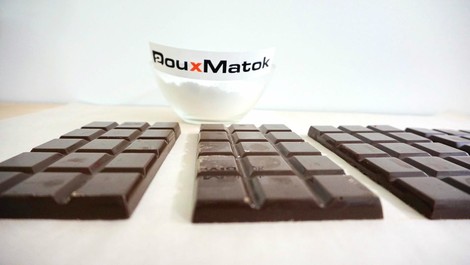Your podcast discovery platform
Curious minds select the most fascinating podcasts from around the world. Discover hand-piqd audio recommendations on your favorite topics.

piqer for: Global finds Health and Sanity Doing Good
Bangalore-based Rashmi Vasudeva's journalism has appeared in many Indian and international publications over the past decade. A features writer with over nine years of experience heading a health and fitness supplement in a mainstream Indian newspaper, her niche areas include health, wellness, fitness, food, nutrition and Indian classical Arts.
Her articles have appeared in various publications including Mint-Wall Street Journal, The Hindu, Deccan Herald (mainstream South Indian newspaper), Smart Life (Health magazine from the Malayala Manorama Group of publications), YourStory (India's media technology platform for entrepreneurs), Avantika (a noir arts and theatre magazine), ZDF (a German public broadcasting company) and others.
In 2006, she was awarded the British Print-Chevening scholarship to pursue a short-term course in new-age journalism at the University of Westminster, U.K. With a double Masters in Globalisation and Media Studies from Aarhus Universitet (Denmark), University of Amsterdam and Swansea University in Wales, U.K., she has also dabbled in academics, travel writing and socio-cultural studies. Mother to a frisky toddler, she hums 'wheels on the bus' while working and keeps a beady eye on the aforementioned toddler's antics.
Sweet News For The Sugar Smitten: Healthier Sweets Might Soon Be A Thing
What can be sweeter news to start the week with than the possibility of ‘healthy sweets’? As oxymoronic as it sounds, it might be a reality in the near future. A boutique Israeli firm and a Germany-based giant sugar behemoth have cracked the great sugar code. Well, almost.
To understand what this is all about, it is first important to know, as the story makes it clear, that sugar is notoriously inefficient in landing on our tongue’s sweet receptors, which are at the tip of our tongues. So inefficient that only about 20 per cent of the sugar molecules we consume, say in a slice of cake, makes the cut, while the rest end up in our gut, without having done anything whatsoever. This is the primary reason why sweet foods are loaded with sugar, much more than required and also why companies find it tough to reduce the amount of added sugar and still make a product taste good.
But this firm is promising to do precisely this. How? With food-grade silica. Why silica? Silica is porous and has many nooks and crannies that can be used to fill up smaller sugar molecules; secondly, unlike the bungling sugar molecules, silica is super-efficient in hitting our taste buds. When sugar-loaded silica hits the tongue receptors it is able to diffuse more powerfully than sugar molecules (and hence reduce the amount of sugar required). Recently, the company announced a partnership with Südzucker, the largest sugar producing company in Europe. The first roll-out of sugar-loaded silica-based sweet products is expected to happen soon in Germany. Happily enough, silica, found in many foods such as rice, green beans etc., is known to strengthen bones. Research on using silica in beverages though is still in the lab stage.
By the way, the Israeli company is called ‘DouxMatok’; ‘Doux’ in French is sweet while ‘Matok’ is Hebrew for sweet. Double sweet. A tautology that all the ‘sweet-toothers’ of the world will be willing to forgive if the company continues to find success in its mission.
